Afghans' altered life under the Taliban
-
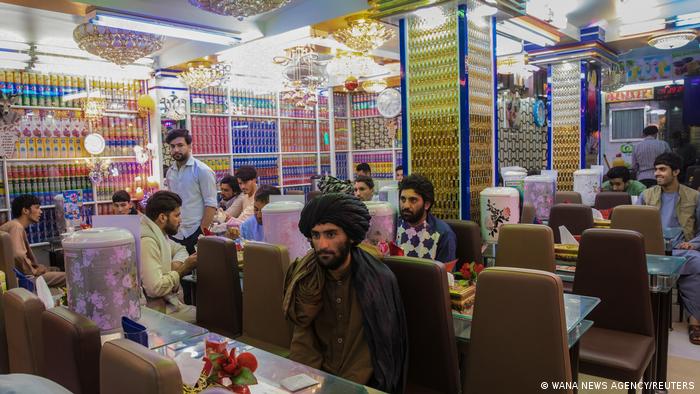
It's a man's world: photos and videos emerging from Afghanistan show bustling activity returning to the streets of cities – as at this restaurant in Herat, where customers are being welcomed back. But there is one conspicuous difference from before: at the tables are men and men alone, often wearing the traditional knee-long tunic. Women have become a rarity in the urban landscape -
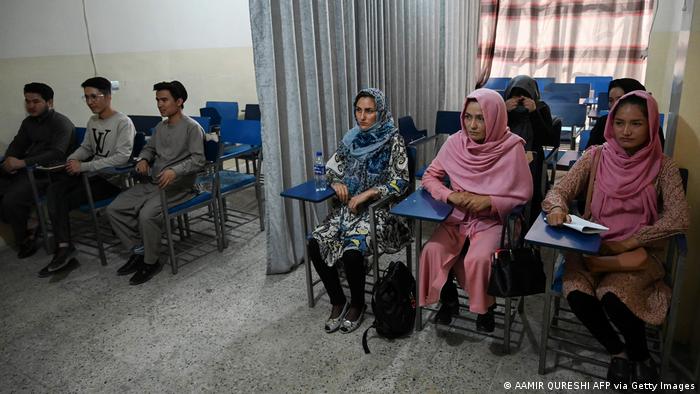
Keep them apart: a curtain divides these students at a private university in Kabul. Gender separation is now the official policy here – and that is likely to spread. "Co-education contradicts the principles of Islam as well as national values, customs and traditions,” said Abdul Baghi Hakkani, the incoming minister for higher education, in Kabul -
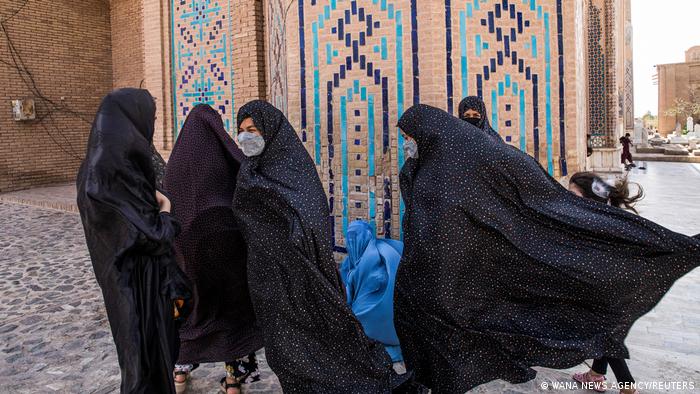
Lost freedoms: like for these women, on their way to a mosque in Herat — after 20 years of allied forces holding the Taliban at bay, freedoms won by women have been quickly erased. Even sports will be off-limits for female players, said Ahmadullah Wasik, deputy head of the Taliban's Cultural Commission -
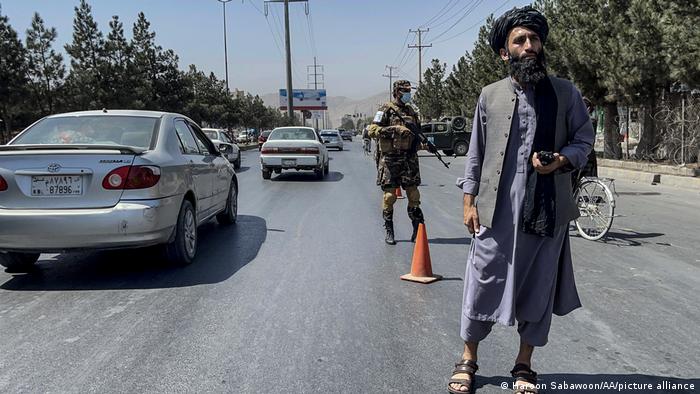
Omnipresent checkpoints: street scenes are also dominated by Taliban checkpoints. As heavily armed men intimidate the populace, people seek to blend in. Western-style clothing is becoming ever rarer – and the sight of heavily armed soldiers, more common -
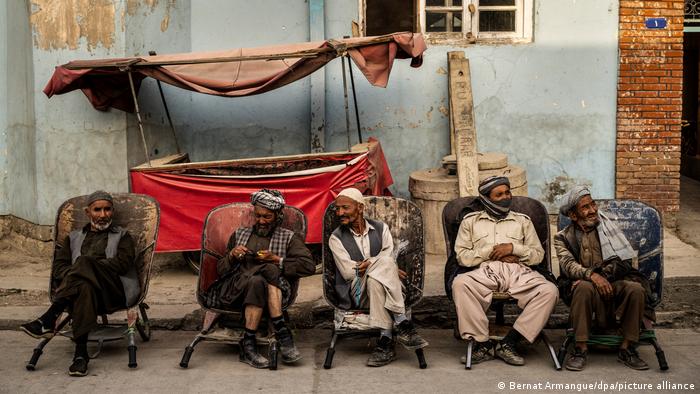
Waiting for work: male day labourers sit at the roadside in Kabul, awaiting a job offer. Afghanistan, already in a precarious economic situation before the Taliban takeover, is now teetering on economic collapse, with unemployment ballooning. The United Nations has said that "universal poverty" threatens to overtake the country within a year. That would be a poverty rate of around 98%, compared to 72% currently -
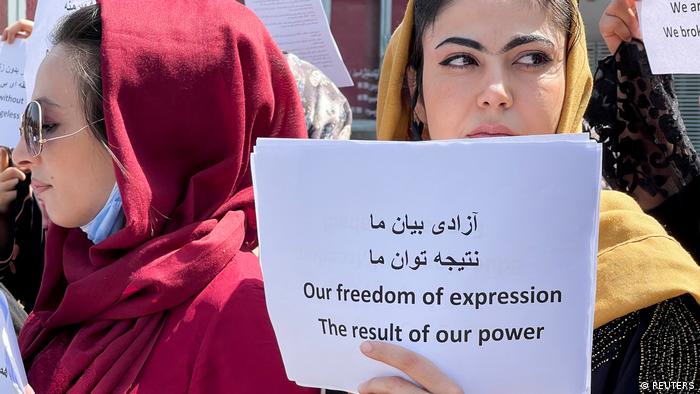
Not going down without a fight: Afghan women, despite being brutally suppressed, continue to demand their right to education, work and equal rights. But peaceful protests are being met with escalating violence, the UN human rights office warns. The radical Islamists have used batons, whips and live ammunition against protesters, with at least four killings and many more beatings -
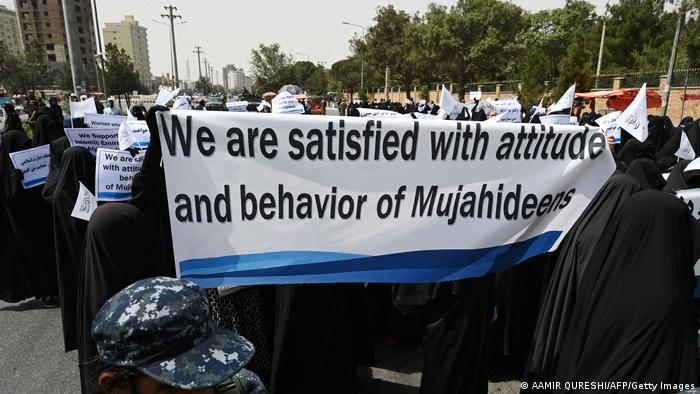
The "pro" faction: these women, on the other hand, say they are happy with the new order. Escorted by official security, they march the streets claiming full satisfaction with the attitudes and behaviour of the Taliban. Such women say those fleeing the country do not represent them and believe that the Islamist rules ensure their safety -
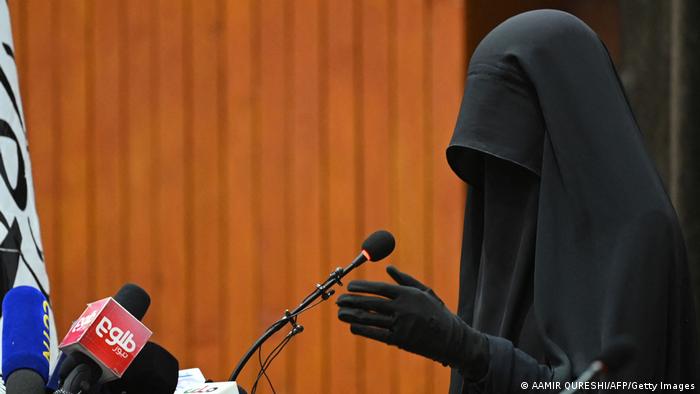
Aligning course: the pro-Taliban demonstration included invitations for journalists, in contrast to anti-Taliban protests. At the latter, journalists report having been intimidated or even abused. It's a clear sign of the changed times – particularly for women
https://qantara.de./en/node/17337
Link
To all image galleries
